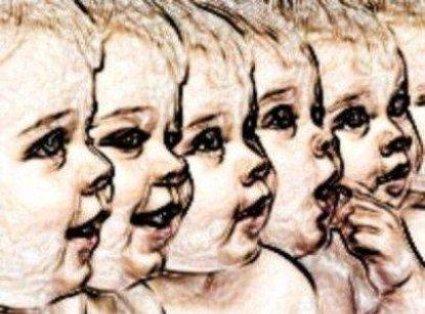
Impact on Society
Cloning in biology is the process of producing populations of genetically-identical individuals and occurs in nature, whenever certain species reproduce asexually. However the main focus of this piece is cloning in biotechnology; which refers to processes used to create copies of DNA fragments (molecular cloning), cells (cell cloning), or organisms. More generally, the term refers to the production of multiple copies of a product such as digital media or software.
Reproductive cloning uses "somatic cell nuclear transfer" (SCNT) to create animals that are genetically identical. This process entails the transfer of a nucleus from a donor adult cell (somatic cell) to an egg which has no nucleus. If the egg begins to divide normally it is transferred into the uterus of the surrogate mother. Such clones are not strictly identical since the somatic cells may contain mutations in their nuclear DNA. Additionally, the mitochondria in the cytoplasm also contains DNA and during SCNT this DNA is wholly from the donor egg, thus the mitochondrial genome is not the same as that of the nucleus donor cell from which it was produced. This may have important implications for cross-species nuclear transfer in which nuclear-mitochondrial incompatibilities may lead to death.
Cloning of Jesus?!!!